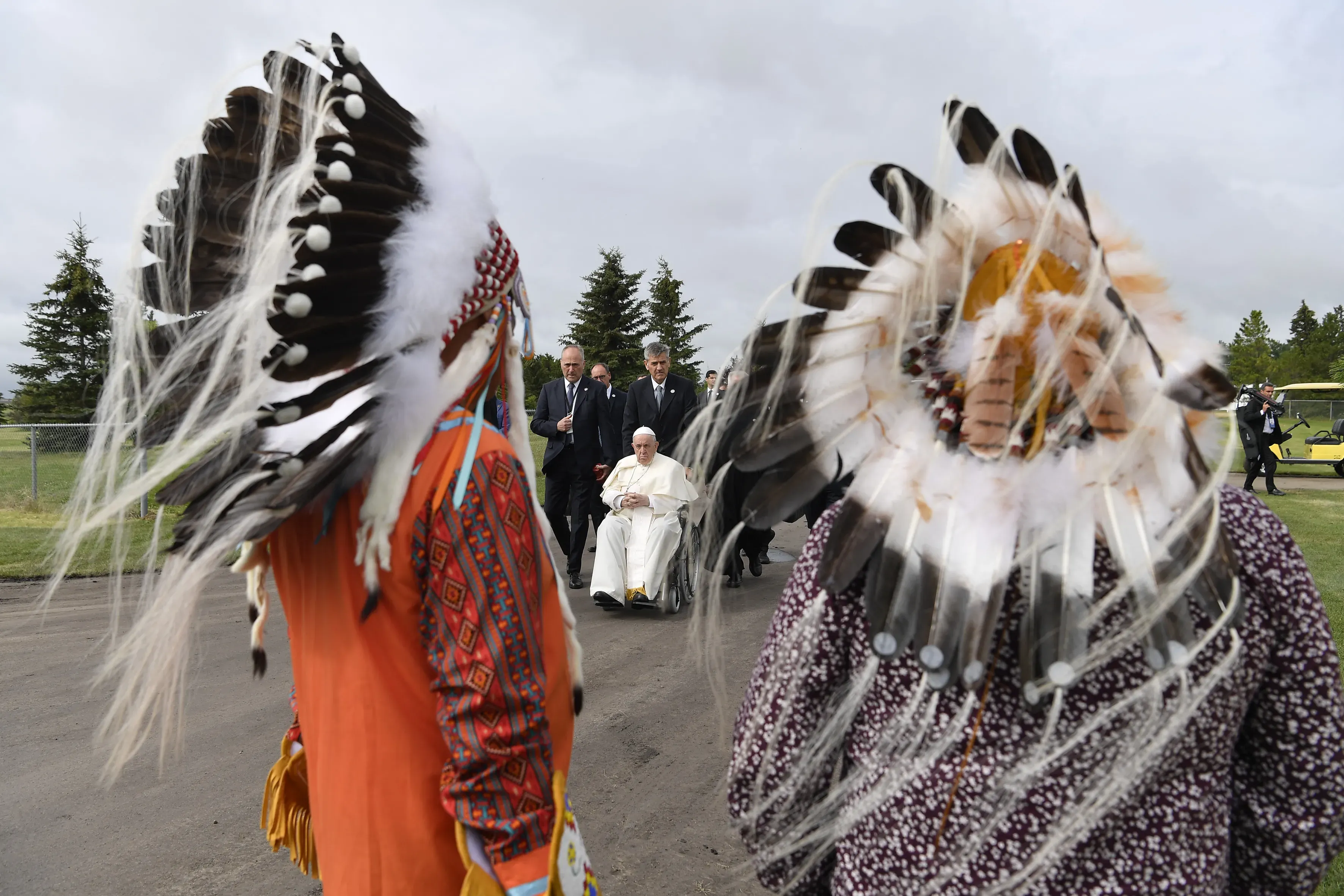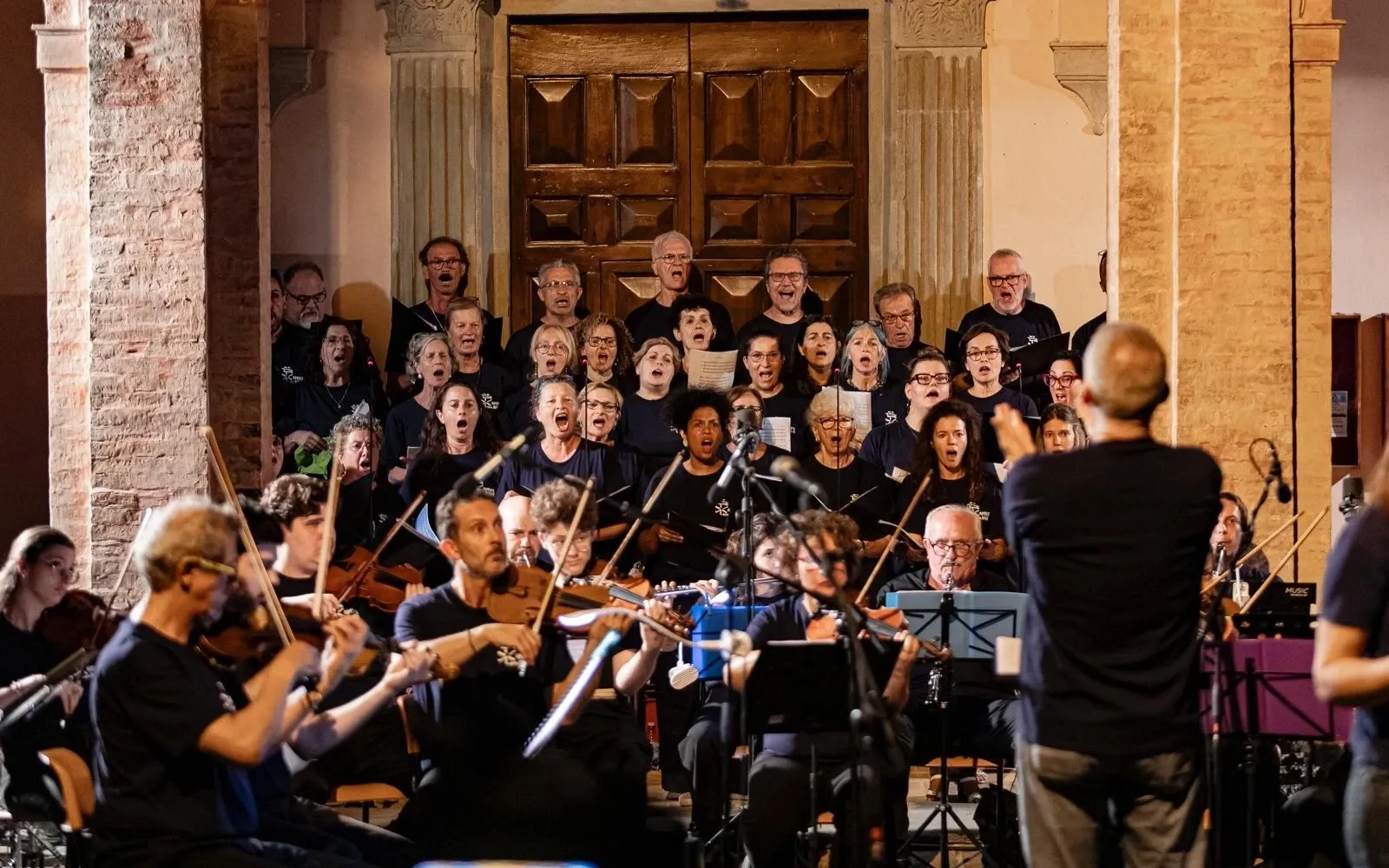The speech marked Pope Francis’ first public address since arriving in Canada on July 24 for a weeklong visit. The venue in Maskwacis, a rural town about an hour’s drive south of Edmonton, is a circular arena typically used for pow wows.
Before mounting the stage, the pope prayed silently at the site of the former Ermineskin Residential School, which included the graves of several former students.
Attending the pope’s address, along with several hundred indigenous people in traditional garb, was the Governor General of Canada, Mary Simon, and Prime Minister Justin Trudeau. The 85-year-old pope has been suffering from health problems of late, and has used a wheelchair frequently for months due to a knee injury. For this speech, Pope Francis was pushed to the stage in his wheelchair, and stood with the help of a cane.
Francis described his apology as a “starting point” on the path to healing, which includes “a serious investigation into the facts of what took place in the past and to assist the survivors of the residential schools to experience healing from the traumas they suffered.”
Canada’s residential schools, though they were government-funded, were administered and run by local churches, the majority of which were Catholic. Sisters of the Missionary Oblates of Mary Immaculate played a large role in running the schools. The schools broadly worked to strip away indigenous students’ native identities, practices, and languages, often against the will of the children’s tribes. Former students at the schools have described mistreatment and even abuse within their walls, along with broad criticisms of the quality of education they received, psychological damage, and other problems such as malnutrition and unsanitary conditions.
“Although Christian charity was not absent, and there were many outstanding instances of devotion and care for children, the overall effects of the policies linked to the residential schools were catastrophic,” the pope continued.
“What our Christian faith tells us is that this was a disastrous error, incompatible with the Gospel of Jesus Christ. It is painful to think of how the firm soil of values, language and culture that made up the authentic identity of your peoples was eroded, and that you have continued to pay the price of this. In the face of this deplorable evil, the Church kneels before God and implores his forgiveness for the sins of her children…I myself wish to reaffirm this, with shame and unambiguously. I humbly beg forgiveness for the evil committed by so many Christians against the indigenous peoples.”
Canada’s Truth and Reconciliation Commission report was released in 2015, and requested an apology from the pope for the abuses it uncovered within one year of its release. In March 2022, Pope Francis met with representatives of the Métis and Inuit indigenous peoples, and with the Canadian Catholic bishops, both at the Vatican, and apologized to them privately.
Chief Wilton Littlechild, a prominent Canadian indigenous leader and advocate who was at the Vatican meeting, opened the ceremony in Maskwacis by welcoming Pope Francis to his homeland.
“Your Holiness, you have come to our land in response to our invitation, and as you








